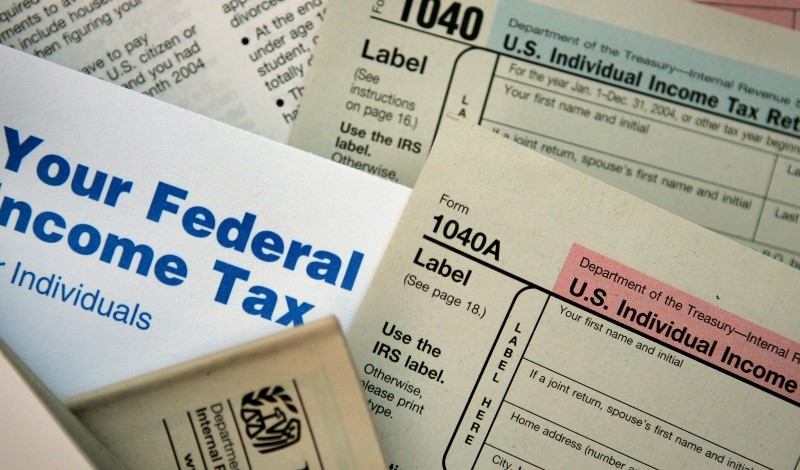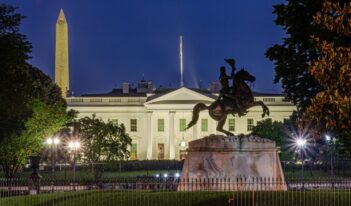
Scholar proposes a set of democracy-centered criteria for evaluating tax regulations.
What makes for good tax policy?
Efficiency, equity, and administrability are the traditional measures for evaluating the efficacy of tax policy. But in a forthcoming article, Clint Wallace, a professor at the University of South Carolina School of Law, argues that promoting democratic governance should be a key goal of tax policy as well.
Governments can design tax systems to advance or impede democracy, according to Wallace. An autocrat wishing to consolidate power might impose tax regulations that place a heavier tax burden on unpopular populations. This sort of preferential treatment can create different standards of living for different groups depending on their fealty to the autocrat.
By the same token, democratic governments can use tax policy to empower citizens and strengthen democratic institutions through direct democratic measures.
Wallace suggests, for example, that taxation can be used as a lever to promote faith in democracy. He argues that the tax system can require all members of the community to pay their fair share of taxes, which will in turn build solidarity. By contrast, a tax policy that appears to relieve only the wealthy of their tax burdens can lead to anger and division in a society, ultimately undermining democratic governance.
An example Wallace raises as a policy that generates anxiety and distrust among citizens is the current requirement that United States taxpayers self-assess and report their income. Many believe this policy shows that “their government is essentially out to get them.” U.S. Senator Ron Wyden (D-Ore.) warned that the tax status quo “causes people to lose faith in government, lose faith in democracy.”
Wallace advises that governments should focus on improving public participation in the tax system in order to facilitate solidarity and trust in democratic institutions. He explains that paying taxes can give taxpayers a “voice in the form of personal control over their government.” For instance, taxpayers can effectively enlist the federal government as a “co-investor” in their charitable activities through charitable tax deductions.
Wallace further connects tax policy and democratic participation by pointing to the public education system. Wallace describes empirical evidence showing that “investment in early childhood education results in gains in recipients’ abilities to engage politically.” Yet the United States’s tax policy related to education provides greater benefit to wealthier communities, Wallace argues.
Through the home mortgage interest deduction, the U.S. government subsidizes home ownership, contributing to the property tax bases that finance local education. Wallace argues that this policy favors individuals living in wealthier communities, since bigger and more expensive houses will generate greater property taxes.
In addition, Wallace adds, tax credits and breaks for private schools favor the wealthy since those schools are more expensive to attend.
Wallace favors using taxation to help policymakers manage the economy in a manner that fosters inclusivity. Taxation plays a central role in redistribution, and Wallace argues that the tax system can help to reduce economic inequality and curb control based on wealth.
The typical justifications for progressive taxation include taxing based on individuals’ ability to pay and based on their share of benefits received. As Wallace explains, these justifications fail to capture that the earliest United States income tax laws were motivated by “collective power concerns” and were accompanied by warnings about the “communism of combined wealth and capital.”
Other scholars have considered the equity of a hypothetical wealth tax by analyzing the predicted impact on the tax base and how the tax would burden taxpayers of different income levels. Wallace contends that this type of analysis pays “no attention to governing context, effectiveness of democratic decision making, or power dynamics potentially facilitated by wealth.”
To demonstrate his analytical framework, Wallace evaluates recent wealth tax proposals presented by U.S. Senators Elizabeth Warren (D-Mass.) and Bernie Sanders (I-Vt.) during the 2020 U.S. presidential election.
Wallace argues that a wealth tax could help increase faith in democracy by signaling that the tax system applies to everybody, including the wealthy. Wallace also notes that a wealth tax could promote democratic participation by providing better funding for education. Indeed, he cites the “ultra-millionaire” tax proposed by Senator Warren, which was designed to channel revenue toward technical education, tuition-free college, and universal preschool.
Given the present challenges of climate change, racial inequity, and economic inequality, Wallace determines, democratic considerations should take on increased focus. The presented democratic framework, Wallace concludes, may serve as a starting point.



